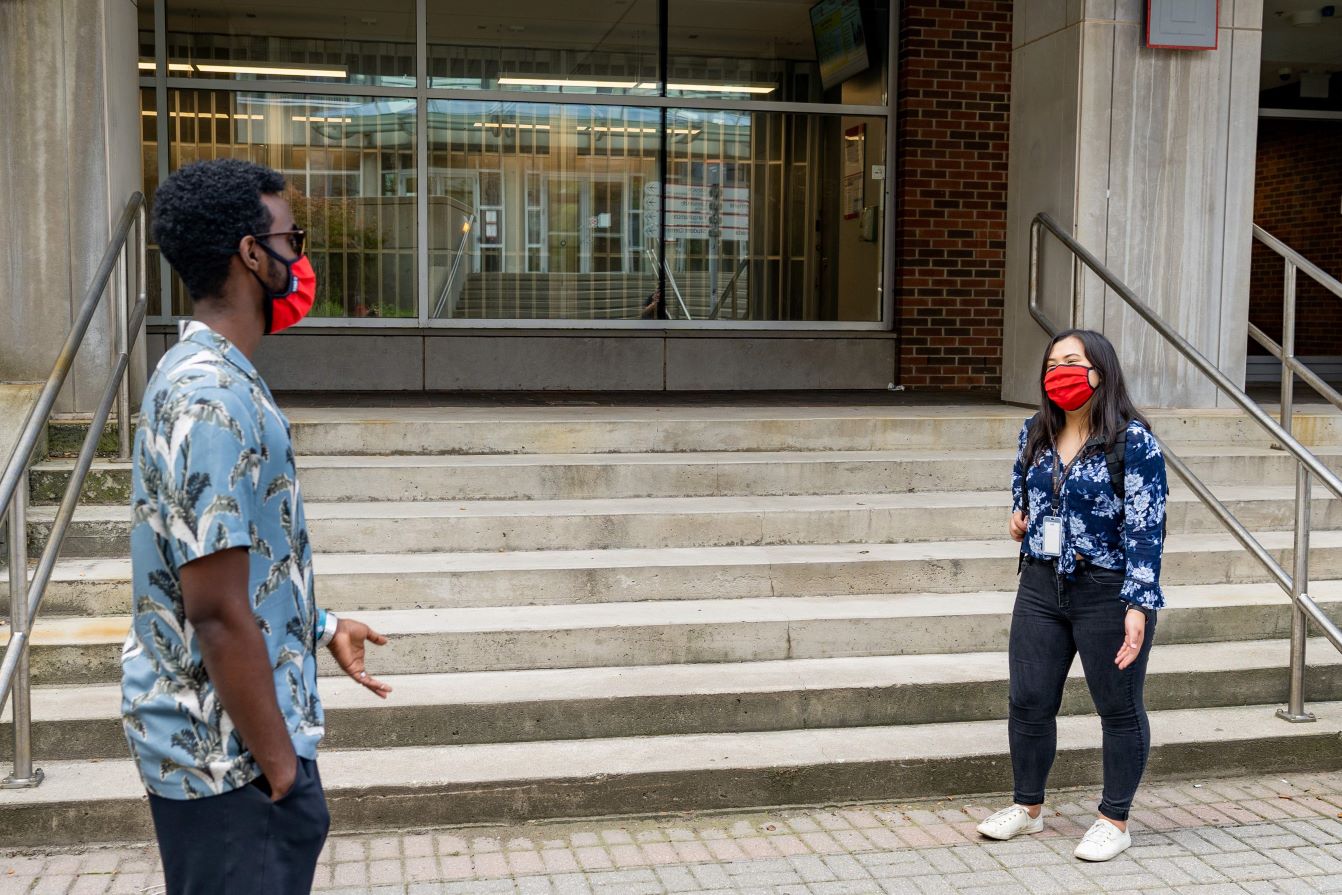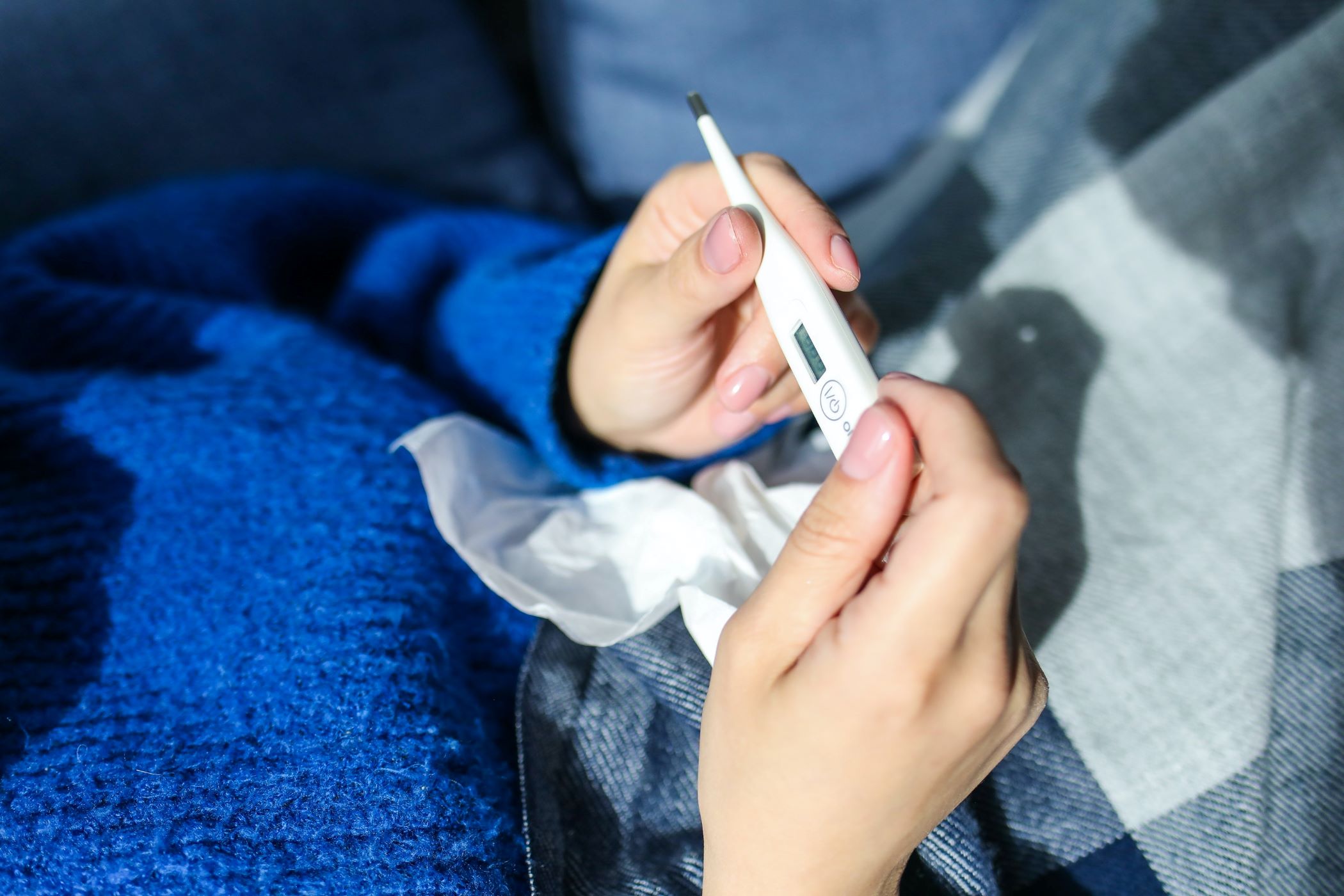Goodbye beach days and hello autumn leaves! As the temperature starts to drop and we all start to hang out indoors, there’s a higher risk of germs spreading. COVID-19 cases tend to rise, along with influenza (the flu) and respiratory syncytial virus (RSV).
What are COVID-19, the flu and RSV?
COVID-19, the flu and RSV are all highly contagious illnesses and mainly spread through droplets (e.g. coughing, sneezing, talking, kissing).
COVID-19
COVID-19 is a highly infectious respiratory disease. Most people with COVID-19 have mild symptoms, but some can become severely ill. If you are experiencing any new or worsening symptoms or have tested positive, complete the Ministry of Health’s Provincial Screening Tool and follow the directions provided for self-isolation, self-monitoring and back to school timelines.
The flu
The flu is a contagious viral infection affecting the nose, throat and lungs. Older adults, young children and people with certain chronic health conditions are at higher risk of complications. Flu season in Canada is usually from November to April.
RSV
RSV is a common respiratory virus that usually causes mild cold-like symptoms. Most people recover in a week or two, but RSV can be serious and life threatening for babies and older adults.
What are their symptoms?
COVID-19, the flu and RSV may share similar symptoms, including a fever, cough and sneezing. Check out this chart from the National Foundation of Infectious Diseases to learn more.
How do I keep myself safe?
Keep germs at bay
Keep your hands clean and help stop the spread of viruses with good respiratory etiquette.
Don’t be afraid to wear a mask

A well-fitted, high-quality mask can do wonders for helping you stay healthy. York is a mask-friendly environment, and you can continue to buy masks on campus. Let’s all respect each other’s masking choices.
Get vaccinated
Health Canada recently approved updated Moderna SPIKEVAX™ and Pfizer-BioNTech COVID-19 vaccines. Visit the Ontario vaccine site to check your eligibility and to book an appointment, or call the Provincial Vaccine Contact Center at 1-833-943-3900 (TTY for people who are deaf, hearing-impaired or speech-impaired: 1-866-797-0007).
Pro tip: Whether it’s your COVID-19 vaccine, flu vaccine or others, keep your vaccination status up to date. Stay tuned for information on upcoming vaccine clinics at York!
Prep yourself
You might do everything right, but there’s still a chance that you’ll get sick:
- Consider picking up a free COVID-19 rapid antigen test kit. York carries a limited supply at select locations.
- Reach out to Student Accessibility Services if you’re managing other accessibility needs or long-term illnesses to discuss academic accommodations.
- If you must miss a test or deadline, make sure to connect with your instructor.
When in doubt, stay home

If you don’t feel so great, the best thing you can do is stay home and screen yourself for COVID-19 or other illnesses.
- If you test positive for COVID-19, follow the instructions from Toronto Public Health.
- If you find your symptoms are getting worse or need help managing them, check in with your doctor or York resources like the Appletree Medical Centre or the Virtual Health Clinic.
- As you’re starting to feel better, use the provincial COVID-19 self-assessment tool to help you figure out when to go back to class in-person.
Pro Tip: You can easily book an appointment with the Virtual Health Clinic with the code YORKU2023.
Where can I get more information?
For the latest updates on COVID-19 and other illnesses, visit the Student Health webpage. If you have any questions or concerns, reach out to your Public Health Nurses at shealth@yorku.ca.